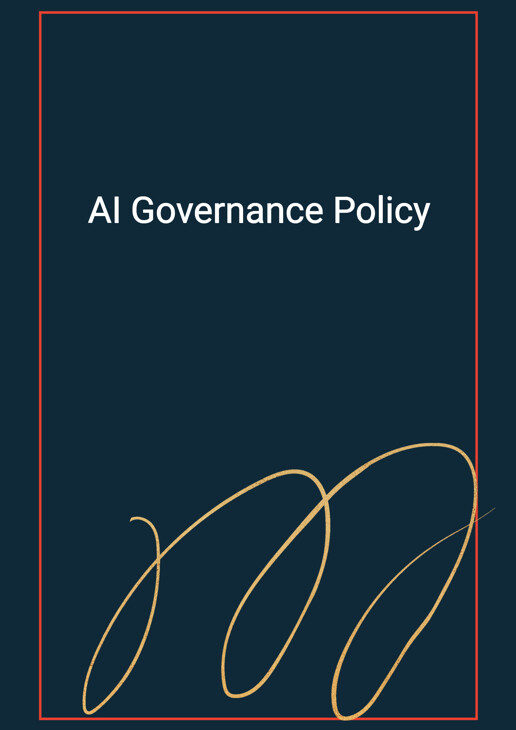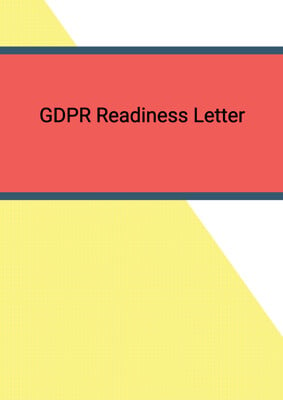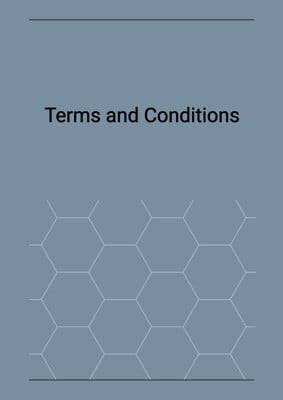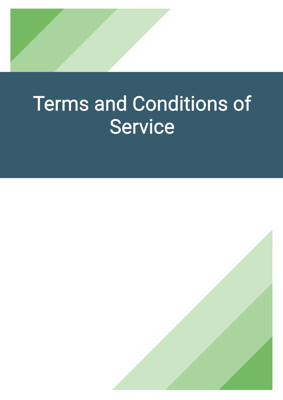How to Tailor the Document for Your Need?
01
Create Document
Click "Create Document" button and the document will be prepared with your account details automatically filled in.
02
Fill Information
Please fill in any additional information by following the step-by-step guide on the left hand side of the preview document and click the "Next" button.
03
Get Document
When you are done, click the "Get Document" button and you can download the document in Word or PDF format.
04
Review Document
Please review the document carefully and make any final modifications to ensure that the details are correct before publication / distribution.
Document Preview
Document Description
AI governance policy refers to the set of rules, guidelines, and frameworks that regulate the development, deployment, and use of AI systems to ensure they operate in a responsible, ethical, and compliant manner.
Key Components:
- Ethical Principles: Core values such as fairness, transparency, accountability, privacy, and safety are the foundation of AI governance. They guide the development and application of AI to align with societal expectations and human rights.
- Regulatory Compliance: AI systems must adhere to various laws and regulations, such as the EU AI Act, GDPR, and industry-specific standards. Compliance ensures that AI is used in a lawful and ethical way.
- Bias Mitigation: Efforts to detect and eliminate biases in AI models are crucial to prevent discrimination and ensure fairness in decision-making. This involves using diverse training datasets and implementing bias detection tools.
- Transparency and Explainability: AI decisions should be understandable and justifiable. Organizations need to document and explain how AI models work to comply with data privacy laws and build trust.
- Security and Privacy: Robust cybersecurity measures are necessary to protect sensitive data used in AI models. Data should be encrypted and anonymized to prevent breaches.
- Performance Monitoring and Risk Management: Continuous monitoring of AI performance is essential to detect issues such as model drift and unintended consequences. Risk assessment processes help identify and mitigate potential threats.
- Human Oversight: Human involvement in AI decision-making processes ensures accountability and allows for the correction of biases or errors. Regular monitoring and auditing by humans are necessary to maintain the integrity of AI systems.
- Importance:
- Risk Mitigation: AI governance helps address risks such as biased decision-making, privacy violations, and misuse of data.
- Building Trust: By ensuring transparency, accountability, and ethical use, AI governance fosters trust between users and AI developers.
- Promoting Innovation: Clear guidelines and standards in AI governance can encourage responsible innovation while balancing creativity and safeguards.
How to Use the Document?
-
Key provisions: Begin by understanding the key provisions of this policy template. Familiarize yourself with the template's objectives and how it aligns with the company's goals.
-
Customization for Company Needs: Tailor the template to align with the specific needs and policies of your company. Modify any generic information to reflect the company's procedures, and requirements.
-
Regular Review and Updates: Establish a process for regularly reviewing and updating the template. Ensure that any changes align with the company's evolving policies and procedures. Communicate updates to relevant stakeholders.
Not the right document?
Don’t worry, we have thousands of documents for you to choose from:




















